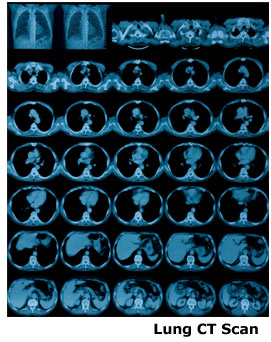Pulmonary Hypertension
Pulmonary Arterial Hypertension (PAH)
What is Pulmonary Hypertension?

Pulmonary Hypertension is an uncommon condition that is caused by a complex group of diseases and which leads to a progressive increase in the pressure of the blood vessels in the lungs. Worsening Pulmonary Hypertension eventually results in several complications including low oxygen levels, fluid overload and failure of the right sided chamber of the heart (the right ventricle) and, if left untreated, in many cases death and clinical disability.
In its early stages, this disease can be asymptomatic (without symptoms) or can include progressive fatigue, lightheadedness and shortness of breath with exertion, with many patients unable to perform daily activities such as walking their dog or going to the grocery store. As the disease progresses, additional symptoms of heart failure manifest such as shortness of breath with rest, loss of consciousness and swelling of the legs and abdomen. Patients also suffer from chronic hypoxia, or lack of oxygen.
What is Pulmonary Arterial Hypertension?
Pulmonary Arterial Hypertension (PAH) is a subgroup of pulmonary hypertension that is caused by various processes including congenital factors (factors from birth), genetic factors, environmental factors, blood clots in the lungs (pulmonary emboli) and certain drugs and/or diet pills. Some patients with pulmonary arterial hypertension have no identifiable cause and are therefore diagnosed with Idiopathic Pulmonary Arterial Hypertension (IPAH).
How is Pulmonary Hypertension Diagnosed?
Diagnosis and management of pulmonary hypertension is complex and requires several modalities of testing to determine the severity and cause(s) of this disease. Testing often includes a right heart catheterization, which is a procedure that uses a catheter to directly measure the pressures inside the blood vessels of the lung and blood flow in the right side of the heart, as well as an echocardiogram, which is a specialized ultrasound of the heart performed non-invasively to determine the function of the heart. Additional procedures including a CT scan of the chest, laboratory tests, pulmonary function tests and walking tests may be required to determine the cause of the disease and monitor its course with management.
How is Pulmonary Hypertension Managed?
While pulmonary hypertension has no cure, several advancements in treatment have been made to substantially improve prognosis of this previously fatal condition.
In 1995, the Food and Drug Administration (FDA) approved the first medication to treat pulmonary hypertension, known as epoprostenol. This drug is administered as a continuous intravenous (IV) infusion from a pump and functions to lower the blood pressure in the vessels of the lung, improving the function of the right side of the heart. Since then, several new IV, subcutaneous and oral drugs have been approved and are used in conjunction with diuretics (medicines to remove fluid from the body to improve heart function) and other modalities (such as cardiopulmonary rehabilitation, supervised exercise programs, and oral salt and fluid restrictions) to treat patients with this debilitating disease. Lung transplantation may be an option for patients with severe disease.
The Arizona Pulmonary Specialists Pulmonary Hypertension Comprehensive Care Center
Management of a complicated disease such as pulmonary hypertension requires a multi-disciplinary team of specialists who are specifically trained in all available treatment modalities. By putting together an outstanding team of specialty trained physicians, research coordinators and clinical pulmonary hypertension nurse coordinators, Doctors Feldman and Ahearn have established a Pulmonary Hypertension Association Accredited Comprehensive Care Center of Excellence at Arizona Pulmonary Specialists. Our nationally recognized center is the largest in the state of Arizona.
Please click on the links below to learn more about our pulmonary hypertension physicians:
Where can I learn more about Pulmonary Hypertension?
To learn more about this complex disease and its management, please visit: